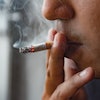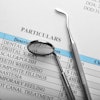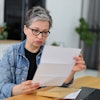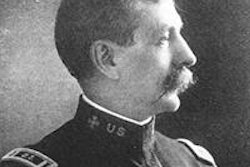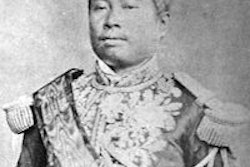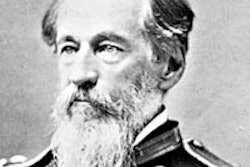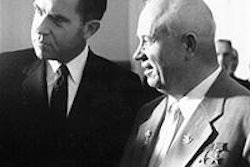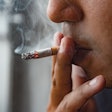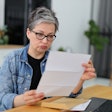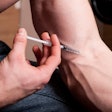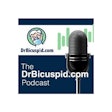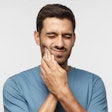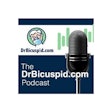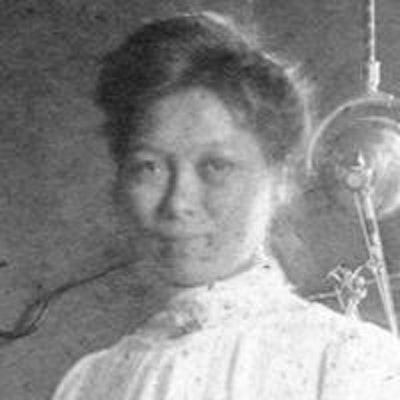
When Faith Sai So Leong graduated from the San Francisco College of Physicians and Surgeons (P & S, now the University of the Pacific Arthur A. Dugoni School of Dentistry) in 1905, she received "rousing applause by her classmates." She was the only woman in the class of 40 and, according to a 1907 article by Ruth Berg of the San Francisco Sunday Call, "her fellow students were her loyal friends."
The P & S yearbook in 1905 claimed she was "universally esteemed and respected" by both classmates and professors. But something else happened that fateful June day.
 Dr. Faith Sai So Leong. Image courtesy of Edwin and Eric Owyang.
Dr. Faith Sai So Leong. Image courtesy of Edwin and Eric Owyang.
Faith became the first Chinese woman to receive a degree in dentistry. It was a monumental achievement for the young woman who had been in the U.S. a scant 11 years. She was a pioneering part of the emerging women's movement -- helping clear the way for others. In 1905, women's suffrage (the right to vote) was 15 years in the future.
Berg, an early publicist of the women's movement, called Faith's accomplishment "amazing," adding, "coming as she does from a nation whose women have dwelt in dense ignorance of all that pertains to modern thought and living." At the time, less than 2% of Chinese women were taught to read.
According to the Chinese historian Thomas Chinn in his book Bridging the Pacific: San Francisco Chinatown and Its People, Faith was sent to San Francisco from Canton "entrusted to the care of a cousin." Her parents hoped she would be educated and brought up in America. According to Chinn, "they expected that she would find better opportunities in [America] and would eventually send them money to help them in their old age." At the time, Faith was 12 years old.
Mrs. E. J. Nickerson and her daughter Agnes had recently moved back to San Francisco from Canton, where they had taught English. Agnes took an English position in San Francisco's Chinatown when she discovered the young girl. She brought Faith home with her to work part-time as a domestic helper, and, at the same time, Faith was mentored and home-schooled by the Nickersons.
Professor Judy Yung, in her book Unbound Feet, A Social History of Chinese Women in San Francisco, relates that the 12-year-old Faith was eventually adopted by the Nickersons. "Faith" was added to Sai So when she was baptized in the Methodist church.
Mrs. Nickerson told Berg that she noticed Faith was "very dexterous and she evinced decided mechanical talent" and did "all the odd bits of tinkering necessary in a household which usually fell to the lot of a man."
Faith also had a Chinese cousin in San Francisco who was a dentist. During her "leisure hours" she spent a great deal of time in his dental parlor and, according to Berg, "it was there that her interest in dental science was aroused." Her cousin encouraged the young girl, and his wife suggested that Faith should pursue a dental career.
Mrs. Nickerson jumped in with financial assistance, and Faith matriculated with the 1905 class at P & S. It was the first time she had seen "the interior of an American schoolroom." Berg relates that "there were two other girls in the freshman class, but these soon dropped out," leaving Faith the lone female in the class. It was also the first time she associated with Americans and "during her first student days, her English was very wobbly," Berg wrote, but within short order her "natural ability soon tided her over grammatical obstacles." By the time of her graduation, other than a decided accent, her English was near perfect. She graduated in the top of her class.
In the context of the times, Dr. Leong's scholastic achievements were remarkable. Two years after she was born, in 1882 the U.S. Congress enacted the Chinese Exclusion Act, which forbade any further immigration of Chinese laborers to the U.S. During the late 1860s, railroad barons had encouraged and enticed Chinese men (excluding their wives and children) to come to the U.S. to help build the western portion of the transcontinental railroad.
Dr. Leong had a stellar career as a dentist. After the 1906 earthquake, she temporarily moved her practice to Oakland while San Francisco rebuilt. In 1909, she married Nam Owyang, the son of the secretary to the Chinese Consul to San Francisco. The two met while she was on a vacation in Hong Kong. The couple had two sons, Eric and Edwin. And turn around was fair play -- a 1912 Tacoma Times newspaper article reported that Dr. Leong had taken Mrs. Nickerson in to live with her family and was providing for her "old benefactress."
On a clear May day in 1929, Dr. Leong was tragically killed in San Francisco's Chinatown when a runaway car slammed her against the wall of a building. Seconds before the impact, she had pushed her 11-year-old son Eric out of harm's way and took the full impact of the collision. The car crushed her leg and she bled out. Dr. Leong was 47.
During her brief life, she had lived the American dream. The young Chinese girl had moved from China to the U.S. She became the first Chinese woman to receive a dental degree and practice dentistry. She inspired her countrymen who had moved to America and proved to doubting Americans that the Chinese could compete with their best. Besides solving dental problems, the positive national publicity generated by the small Chinese woman began the healing process between two races -- Chinese and Caucasian. She was the predicate necessary for that healing to begin. Both her sons followed her in medical careers: Edwin became a physician and Eric, the son whose life she saved while sacrificing her own, became the chief clinical pharmacist at the University of California, San Francisco Medical Center.
Daniel Demers is a semiretired businessman whose hobby is researching and writing about 19th and 20th century historical events and personalities. He holds a bachelor's degree in history from George Washington University and a master's degree in business from Chapman University. You can review his other published works at www.danieldemers.com.
References
Books
Chinn TW. Bridging the Pacific: San Francisco Chinatown and Its People. San Francisco, CA: Chinese Historical Society of America; 1989.
Curtis EK. A Century of Smiles. San Francisco, CA: University of the Pacific School of Dentistry; 1995.
Hunter J. The Gospel of Gentility, American Women Missionaries in Turn-Of-The-Century China. New Haven, CT: Yale University Press; 1984.
Yung J. Unbound Feet, A Social History of Chinese Women in San Francisco. Berkeley, CA: University of California Press; 1995.
Periodicals/Journals
Berg R. The only Chinese woman dentist. San Francisco Sunday Call. September 15, 1907:11. https://chroniclingamerica.loc.gov/lccn/sn85066387/1907-09-15/ed-1/seq-11/.
Chinese girl is some dentist so all her patients declare. The Tacoma Times. September 19, 1912:3. https://chroniclingamerica.loc.gov/lccn/sn88085187/1912-09-19/ed-1/seq-3/
Chinese girl is some nifty dentist. Day Book. September 23, 1912:9. https://chroniclingamerica.loc.gov/lccn/sn83045487/1912-09-23/ed-1/seq-9/
Websites
Blain R. Dental hygiene, an ancient practice -- The history of the toothbrush. http://ezinearticles.com/?Dental-Hygiene,-an-Ancient-Practice---The-History-of-the-Toothbrush&id=18906 (Accessed April 21, 2013).
Chinese Exclusion Act (1882). Our Documents website. https://www.ourdocuments.gov/doc.php?flash=true&doc=47. Accessed December 13, 2013.
Chinese history of dentistry. DrMuna.com website. http://drmuna.com/chinese-history-of-dentistry/ Published February 3, 2011. Accessed April 21, 2013).
Timeline: Women dentists. University of Michigan School of Dentistry website. http://www.dent.umich.edu/sindecuse/exhibits/womendentists/timeline. Accessed May 4, 2013.
Email correspondence
Dr. Dorothy Dechant, University of the Pacific Arthur A. Dugoni School of Dentistry.
Douglas and Sharon Owyang, Ran Owyang, Norman Owyang, Kathleen Faith Owyang Turner, and Diana Owyang.
Grant Din, director of special projects, Angel Island Immigration Station Foundation, San Francisco, CA.
Shannon O'Dell, director and curator, Sinecure Museum of Dentistry, University of Michigan.
Yue Mae, director, Museum of Chinese Americans, New York City.

